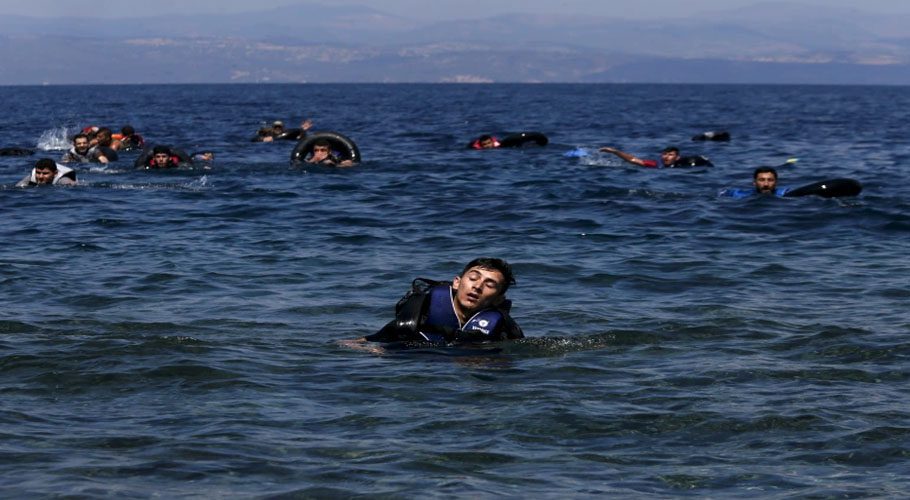NEW YORK: More than 3,000 migrants, refugees, and asylum seekers died or went missing last year while trying to reach Europe via Mediterranean and Atlantic sea routes, according to a new report by the United Nations refugee agency (UNHCR).
UNHCR’s Shabia Mantoo told a news briefing in Geneva on Friday that the figure for 2021, a year in which Europe hardened its borders as new refugee crises flared, represented nearly twice the number of lives lost in the previous year.
“We are seeing the increases soar,” she said. “It’s alarming.”
Of the 2021 total, 1,924 people were reported dead or missing on the Central and Western Mediterranean routes, according to UNHCR’s report. An additional 1,153 were reported dead or went missing on the Northwest African maritime route to the Canary Islands.
“Most of the sea crossings took place in packed, unseaworthy, inflatable boats – many of which capsised or were deflated leading to the loss of life,” the agency said.
It noted that an additional 478 people have died or gone missing at sea since the beginning of 2022 and called for “urgent support to prevent deaths and protect refugees and asylum seekers who are embarking on dangerous journeys by land and sea”.
UNHCR said it was calling for $163.5m in support to help provide alternatives to the perilous boat journeys and prevent individuals from becoming the victims of human traffickers who operate on the routes to Europe.
“The Appeal covers some 25 countries across four different regions connected by the same land and sea routes which are used by migrants, asylum seekers and refugees,” it said, adding the group includes countries of origin, departure, first asylum, transit, and destination.
UNHCR also urged the states to introduce enhanced “legal frameworks and operational capacities at land and sea borders and in urban centres, and to ensure credible alternatives to dangerous journeys through inclusion, and strengthened youth programming and local community-based development”.
“States must ensure unimpeded humanitarian access for the delivery of essential services to people on the move or stranded, intercepted at sea, or held in detention centres, and to determine whether they have international protection needs,” it said.
Meanwhile on Friday, the head of the European Union’s border agency Frontex, Fabrice Leggeri, offered to resign after accusations the body mistreated migrants on the external frontiers of the bloc.


































